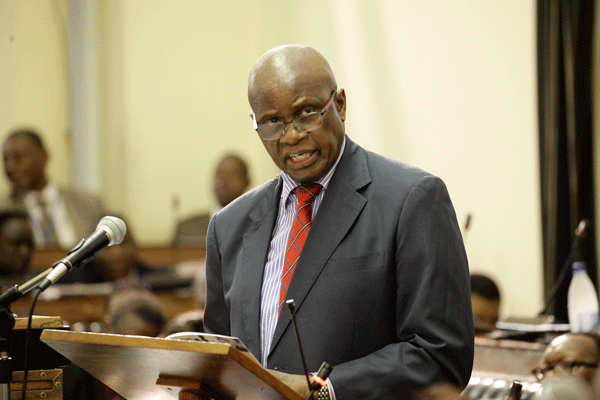
The introduction of new taxes on commuter operators and hairdressers will further impoverish the struggling informal traders, critics say.
BY TARISAI MANDIZHA

Government recently introduced taxes for most informal businesses such as taxi cabs, commuter omnibuses, hairdressers and cross-border traders, among others.
The new wave of taxes took effect from January 1 2017 and were brought into being by the Finance Act 2017.
“Operators of hairdressing salons to pay $10 per chair per month while informal cross-border traders will pay 10% of the value for duty purposes of the commercial goods being imported.
“Operators of omnibuses for carriage of passengers will be required to pay $45 while those of between 25 and 36 passengers will part with $70 a month,” reads the Government gazette.
The prevailing harsh economic environment has pushed millions of people into the informal sector following company closures and retrenchments which threw people into unemployment.
The new wave of taxes will also affect driving schools with those offering class 4 licences being required to pay $100 per month per vehicle.
- Chamisa under fire over US$120K donation
- Mavhunga puts DeMbare into Chibuku quarterfinals
- Pension funds bet on Cabora Bassa oilfields
- Councils defy govt fire tender directive
Keep Reading
Class one and two school vehicle operators will part with $130 a month.
“The presumptive tax chargeable in terms of section 36c of the Taxes Act shall be in case of operators of taxi cabs for carriage of passengers for hire or reward having seating accommodation for not more than seven passengers, $25 per month for each such taxi cab so operated,” reads the gazette.
National Transport Workers Union of Zimbabwe president Noah Gwande said the introduction of new taxes for commuter operators was retrogressive as it was being imposed on a commuter operator who was already paying other taxes.
He said commuter omnibus operators in Harare parted with more than $20 each day in paying fines to the police at numerous roadblocks dotted around the city.
Apart from tickets, commuter operators pay tollgate fees and in every three months pay Road Motor Service and Zimbabwe National Roads Administration taxes in addition to passenger insurance.
“It is our view that the recently introduced tax is unfair and retrogressive; trying to collect tax where there is no income,” he said.
“The concept of tax [works] where there is income but taxing the little income the owner makes will result in the cost being passed on to the passengers.”
Gwande said it was unfair for government to introduce taxes to finance its wage bill.
“Taking money from the poor to pay the civil servants’ wage bill doesn’t make sense,” he said.
“The problem for government is that civil servants are demanding money and government is trying to fulfil its promises.”
In an interview with Standardbusiness, a hairdresser, Olga Chakauya said clients’ incomes were low and this reduced their spending.
“There is no employment and there is a shortage of cash in the market, so for government to tax a hairdresser, it’s wrong,” she said.
Chakauya said the number of hairdressers in the CBD was rising because of high unemployment in the country.
But Zimra board chairperson Willia Bonyongwe said the taxes were not new but the tax collector had just broadened the tax base.
“It was there before for people in small-scale business and it is true that at the end of the day these small businesses get more money than teachers who are being taxed,” she said.
Zimbabweans are said to be some of the most highly taxed people in the world, with the government introducing new taxes almost every year to make up for dwindling revenue.











